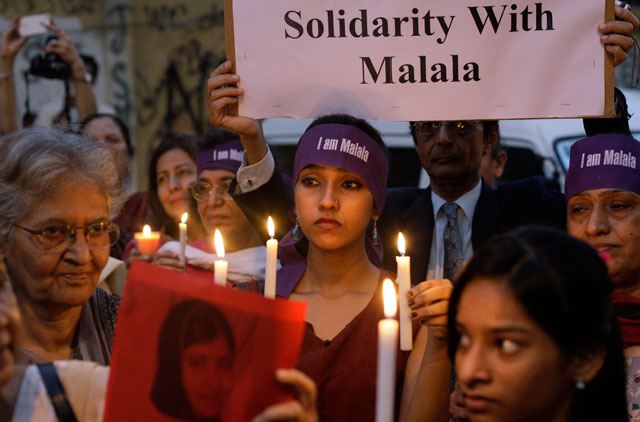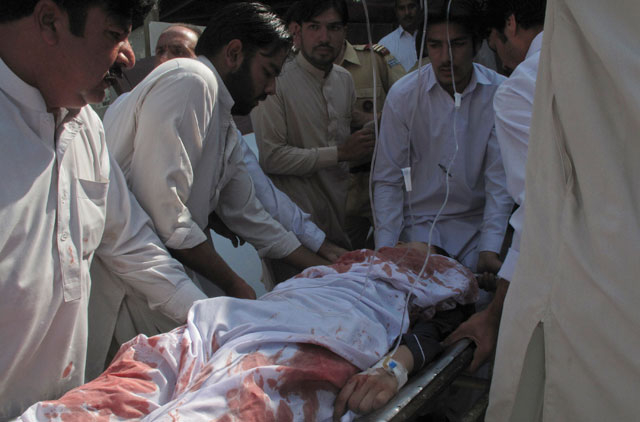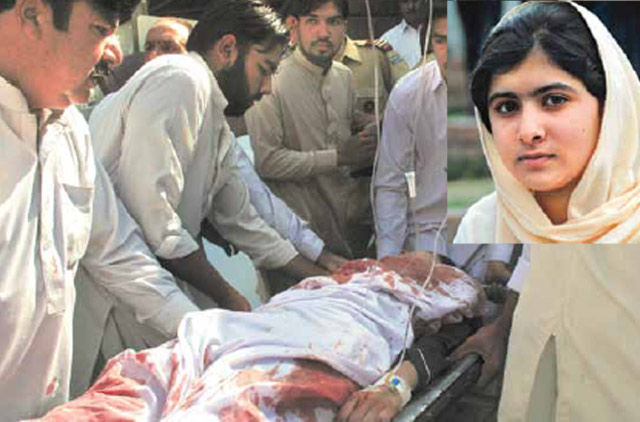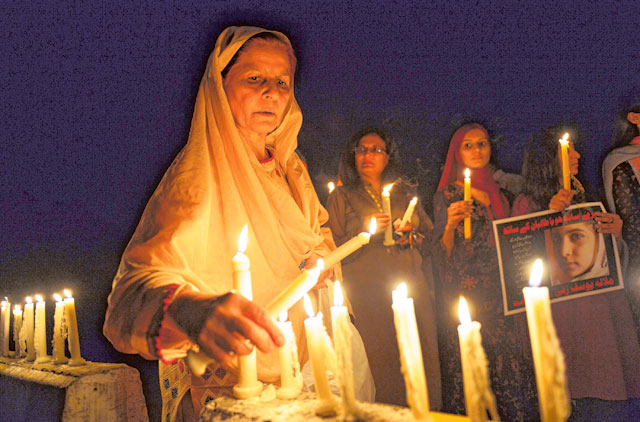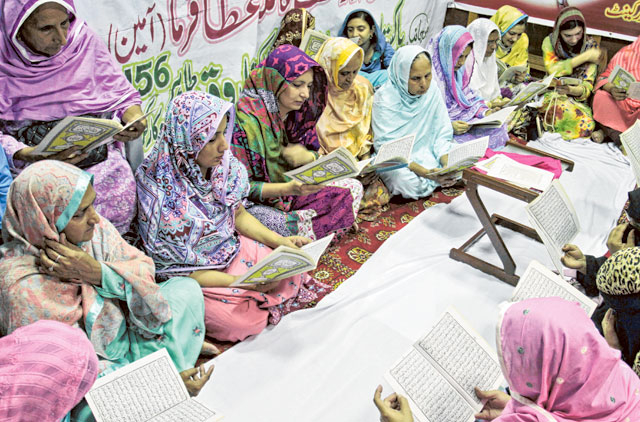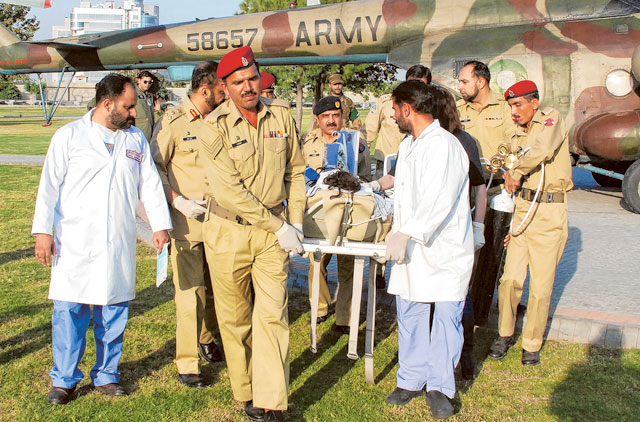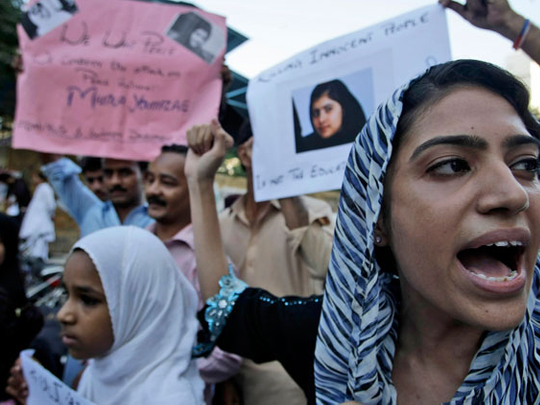
Mingora: Pakistani police say they have arrested a number of suspects in the case of a 14-year-old girl shot and wounded by the Taliban after promoting girls' education and speaking out about Taliban atrocities.
A senior police official in Mingora, Afzal Khan Afridi, said Friday that police made arrests in the shooting of Malala Yousufzai.
He declined to give any details about their number, what role they're suspected in having in the shooting on Tuesday or how police apprehended them.
Yousufzai and two other girls were shot Tuesday in a school bus on their way home from school. The young activist is being treated at a hospital in Rawalpindi.
The shooting sparked outrage around the country and world and an outpouring of support for a girl who took on the Taliban.
Hospital transfer
Earlier it was reported that Malala had been transferred on Thursday from a hospital in a province that is a militant haven to a specialist hospital in the army garrison town of Rawalpindi.
Malala Yousufzai, 14, was unconscious in critical condition after being shot in the head and neck as she left school on Tuesday, but doctors said she had moved her arms and legs slightly the night before.
Pakistani surgeons removed a bullet on Wednesday from Yousufzai, who was shot by the Taliban for speaking out against the militants and promoting education for girls.
Her courage made her a national hero. The shooting has drawn condemnation from world leaders and many Pakistanis.
Yousufzai began standing up to the Pakistani Taliban when she was just 11, when the government had effectively ceded control of the Swat Valley where she lives to the militants.
Her father, Ziauddin Yousufzai, who runs a girls’ school, said his daughter had defied threats for years, believing the good work she was doing for her community was her best protection.
A correspondent watched as she was moved from an army hospital in the regional capital of Peshawar to the Armed Forces Institute of Cardiology in Rawalpindi to help her treatment.
“Pray for her,” her distraught uncle, Faiz Mohammad, said before the ambulance left the hospital.
A husband-and-wife team of two British doctors who were attending a seminar in Pakistan at the time of the attack on Thursday have joined local surgeons in treating Yousufzai.
She was shot with two other girls on Tuesday as she left school in Swat, northwest of Islamabad. One of the girls is out of danger and the other remains in critical condition.
A Taliban spokesman said she was targeted for trying to spread Western culture and that they would try to kill her again if she survived.
‘Barbaric and Cowardly’
Authorities had identified her attackers, said regional governor Masood Kausar. The local government has posted a 10 million rupee reward for their capture.
“The security agencies are closely working with each other and they have a lot of information about the perpetrators. We hope our security agencies will soon capture them and bring to justice,” he said.
The attack outraged many in Pakistan, with small, impromptu rallies held in her support in many cities. Schools had also closed across Swat in protest over the shooting and a small demonstration was held in her hometown of Mingora.
Pakistan’s president, prime minister, and heads of various opposition parties joined human rights group Amnesty International and the United Nations in condemning the attack.
On Wednesday, White House spokesman Jay Carney said the US had offered any assistance necessary.
“The president found the news reprehensible and disgusting and tragic,” Carney told reporters.
“Directing violence at children is barbaric, it’s cowardly, and our hearts go out to her and the others who were wounded as well as their families.”
Yousufzai had spent the last three years campaigning for girls’ education after the Taliban shut down girls’ schools. She received Pakistan’s highest civilian award but also a number of death threats.
In 2009, the army pushed the Taliban out of her hometown of Mingora, but the attack showed the militia’s ability to strike even inside heavily patrolled towns.


